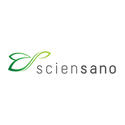In short
Since the declared Polio-free status of all EU countries in 2002, each European country is undertaking various activities in order to keep his polio-free status. Those common efforts will last until the circulation of poliovirus is globally achieved.
In Belgium, the polio activities are coordinated by a national committee (NCC – National Certification Committee). Sciensano, through its Epidemiology and infectious diseases service, is coordinating the committee (Secretariat role), which mainly consists in giving scientific, technical and administrative support.
The activities realised in Belgium to maintain the country polio-free are:
- Keeping up-to-date with the worldwide situation of polio eradication
- Following the recommendations given by the European committee
- Verifying that appropriate actions are undertaken regarding proper containment of poliovirus
- Collection and analysis of polio-related surveillance data
- Annually report on the national situation and its evolution
Project description
In the early 20th century, polio was paralysing hundreds of thousands of children every year, and was one of the most feared diseases in industrialized countries. Since 1988, when the Global Polio Eradication Initiative began, more than 2.5 billion children have been immunized against polio.
The WHO European Region was certified polio-free in 2002, and today, the global incidence of polio cases has decreased by 99%. There are only two countries where wild poliovirus continues to circulate (Afghanistan and Pakistan).
The certification process for polio eradication is overseen by the Global Certification Commission of the World Health Organization (WHO) and is conducted on a regional basis. In Europe, the European Regional Commission for Certification of Poliomyelitis Eradication (RCC)ensures the certification of polio eradication. The RCC is annually assessing the risk of poliovirus circulation for each European country, and addressing them official recommendations to diminish that risk score.
To sustain the highest quality of polio eradication activities, each Member state has to implement a national plan of actions, including the RCC recommendations. This is the role of the National Certification Committee (NCC) composed of health professionals.
In order to improve its polio containment measures, as well as its surveillance quality of poliovirus circulation, Belgium is in a continuously improving process. That passes by the annual revision of the polio action plan and the assessment of the activities achievement officially approved during the NCC annual meeting. All future actions are also jointly decided and approved by the members of the national committee.
CNN composition
The CNN is composed by twenty active members, including a President and a Secretariat.
Members are nominated based on their personal expertise, as independent individuals, rather than as representatives of particular institutions or disciplines. They have technical expertise and experience in areas related to the eradication of poliomyelitis (such as epidemiology, virology, paediatrics, molecular biology or public health).
As active member of the committee, Sciensano, and more precisely the Epidemiology of infectious diseases service, assumes the role of NCC Secretariat, providing scientific, technical and administrative support. The Secretariat is gathering all the data the NCC will need, from poliovirus surveillance, immunization coverage, or poliovirus containment, in order to annually analyse and report on the Belgian situation concerning the risk of polio circulation.
List of active members
- Dr I De Coster Chairperson Senior Researcher (U Antwerpen)
- Dr K Hansford Secretariat Epidemiology and Public Health (Sciensano)
- Mme E Wollants Lab manager, NRC National Reference Centre for Enteroviruses including polioviruses (KU Leuven)
- Dr L Cuypers Member National Reference Centre for Enteroviruses including polioviruses (KU Leuven)
- Mrs C.D. Do Thi Member Biosafety and Biotechnology Unit (SBB) (Sciensano)
- Mme A Schmelz Member “Ministerium der Deutschsprachigen Gemeinschaft”, German-speaking community ( Ministry of the German-speaking Community)
- Dr N Hammami Member Agentschap Zorg en Gezondheid (Flanders Region)
- Dr V Jong Member “Agentschap Zorg en Gezondheid”, Flanders Region (Agency for Care and Health)
- M. B Hoorelbeke Member Public Health Emergencies, Federal Public Service of Health, Food Chain Safety and Environment
- Prof. Dr P Van Damme Member University of Antwerp (UAntwerpen)
- Dr S Blumenthal Member Pediatrician infectiologist, CHIREC Delta Hospital — representing Belgian Society of Pediatrics
- Mme M Lesenfants Member Epidemiology and Public Health (Sciensano)
- Dr U Maniewski Member Institute of Tropicale Medicine (ITM)
- Dr L Bruggeman Member Federal Agency for the Reception of Asylum seekers (Fedasil)
- Dr A Poll Member Federal Agency for Medicines and Health products (FAMHP)
- Dr A Taame Member Vivalis (Brussels Region)
- Dr P Carrillo Member Office de la Naissance et de l’Enfance (ONE)
- Dr MC Nassogne Member Université Catholique de Louvain (UCL)
- M. JL Golnez Member Federal Agency for Medicines and Health products (FAMHP)
- Mme M Delpire Member Agence pour une vie de Qualité (AVIQ) (Wallonia Region)
- Dr C Huvelle Member Agence pour une vie de Qualité (AVIQ) (Wallonia Region)
- Dr E Padalko Member Universitair Ziekenhuis Gent (UZ Gent)
- Mme L De Mets Member Public Health Emergencies, Federal Public Service of Health, Food Chain Safety and Environment
- Dr V Vekeman Member Kind en Gezin
- Dr B Ceulemans Member Neuro pediatrician- UZ Antwerp. respresenting Belgian Society of Pediatrics
Sciensano's project investigator(s):
Partners



